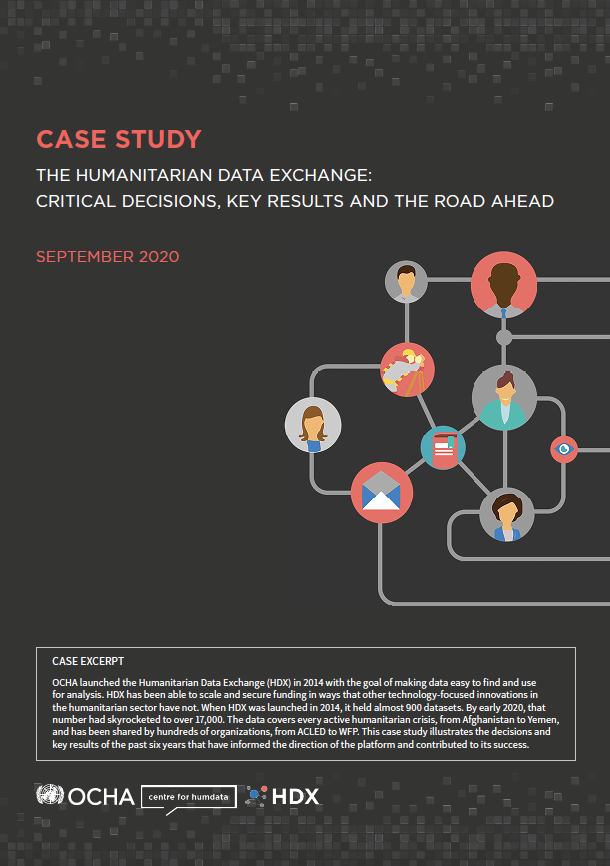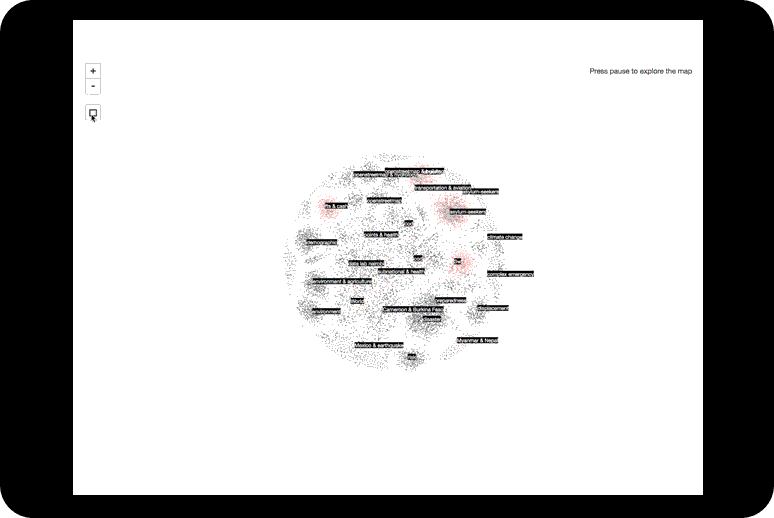Share
OCHA launched the Humanitarian Data Exchange (HDX) platform in 2014 with the goal of making data easy to find and use for analysis. As HDX marked its sixth anniversary in July 2020, we thought it would be useful to reflect on the progress that we have made with our partners. Today, the data on HDX covers every active humanitarian crisis, from Afghanistan to Yemen, and has been shared by hundreds of organizations, from ACLED to WFP.
The HDX case study illustrates the critical decisions and key results that have informed the direction of the platform and contributed to its success, while also offering a roadmap for its future. There is little documentation on the process of innovation in the humanitarian sector, and we hope that the case study might contribute to this literature so that together we can understand the promise and potential pitfalls of introducing change into our work.
The case study includes six sections: Key Learnings; Making the Case; The Humanitarian Innovation Context; Building HDX; HDX Today; and The Road Ahead. It was developed with funding and support from the Institute of Development Studies in partnership with the UK’s Department for International Development (now the Foreign, Commonwealth & Development Office).

As HDX continues to scale and mature, its development will be guided by user feedback and our community of data contributors. While the majority of our time is now spent on maintenance — making sure things are working as they should be — we also want to optimize the experience in a number of ways, from quicker search results to more automated updates to the data and improved data ‘freshness’. Over the coming period, we will be focused on two areas for HDX: closing data gaps and ensuring sensitive data is managed responsibly.
Even as innovations like HDX become established services, they require continued investment to truly scale and deliver on long-term goals. We know that better data is needed but we also need to look at how data is used. This is where the next set of humanitarian innovations can come in, moving beyond platforms and tools for data collection and sharing to machine learning and predictive modeling, an area that the Centre for Humanitarian Data is exploring.
Send any questions or feedback to centrehumdata@un.org.
